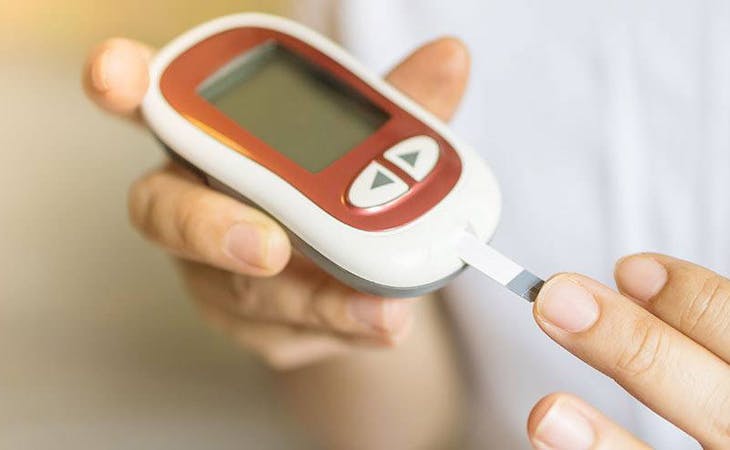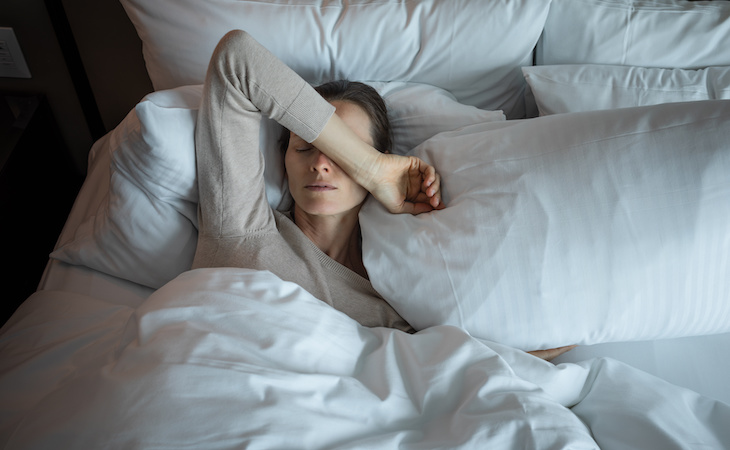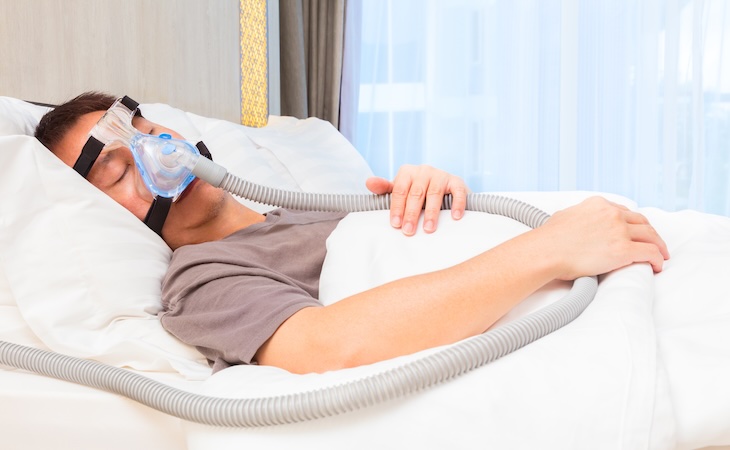More than 30 million Americans—that’s 9% of the population—have diabetes. The disease has many potential complications and side effects, and some of them can disrupt your sleep. Here’s what you can do to get to the root of the problem and sleep better if you have diabetes.
How does diabetes affect sleep?
Common side effects of diabetes that can interrupt sleep include:
- An excessive need to hydrate and urinate. It’s not uncommon for most people to wake once in the night to use the bathroom. With poorly-controlled diabetes, however, those bathroom visits can be frequent. High blood sugar (also called hyperglycemia), the hallmark of diabetes, causes excess glucose to build up in your blood, forcing your kidneys to work overtime to filter it from your system. At the same time, fluids are depleted from your body’s tissues, which leaves you dehydrated. The result is a cycle of drinking fluids to quench your thirst, followed by needing to urinate.
- Feeling sweaty, shaky, or dizzy. If your dose of oral diabetes medication or insulin is too high, or you haven’t eaten in a while, your blood sugar levels can drop, causing hypoglycemia. As a result, you may feel shaky, sweaty, dizzy, or hungry, and therefore unable to sleep soundly.
- Peripheral neuropathy. One of the common side effects of poorly-controlled diabetes is peripheral neuropathy, which causes tingling and burning sensations in hands and feet, particularly at night. In some cases, neuropathy can make your skin feel extremely sensitive, to the point where even a light sheet can cause pain.
Having diabetes also puts you at higher risk for certain sleep disorders including:
- Obstructive sleep apnea. Obstructive sleep apnea (OSA) is the most common sleep disorder in people with diabetes; it is believed that as many as 86% of people with diabetes also have OSA. In obstructive sleep apnea, the breathing is interrupted intermittently during sleep, leading to restless sleep and frequent awakenings. OSA is worsened by diabetes, and diabetes is worsened by OSA. While the relationship between the two conditions is not entirely clear, both are associated with obesity.
- Restless legs syndrome. Restless legs syndrome (RLS) is a neurological disorder that causes tingling and crawling sensations in the legs and an intense urge to shake the legs. RLS makes it hard to fall asleep and stay asleep. Research has indicated that people with diabetes are more likely to have RLS than the general population.
- Insomnia. Low blood sugar can cause anxiety, irritability, and restlessness—all potential causes of insomnia.
How does poor sleep affect diabetes?
Not only does diabetes affect the quality of your sleep, but sleeping poorly may actually worsen diabetes or increase the likelihood of developing it, according to some studies.
“Lack of sleep decreases the brain’s ability to utilize glucose and can negatively affect levels of cortisol and other hormones that play a role in sleep,” says Anis Rehman, MD, diabetes specialist and assistant professor of medicine at Southern Illinois School of Medicine.
How can you sleep better if you have diabetes?
“The most important thing you can do to get better sleep if you have diabetes is to make sure your blood sugar is under control,” says Rehman. This means seeing your doctor regularly, taking insulin or oral medications as directed, and following any lifestyle recommendations, such as eating properly and exercising regularly.
If you have underlying conditions such as OSA or RLS, it’s important to receive treatment for those as well.
Finally, people with diabetes should apply the following sleep hygiene techniques:
- Respect your rhythms. Try to go to sleep and wake up at roughly the same time every day. Sure, real life means you need to be somewhat flexible in this regard, but staying up very late and sleeping late to make up for lost sleep on a regular basis is likely to make it harder to sleep the rest of the time.
- Shut down the screens. There’s no doubt that technology contributes to sleep problems. Reading the news on your phone and scrolling through social media is stimulating (and often upsetting), plus the type of light used to illuminate screens can keep you from being able to fall asleep. Try these tips for how to ban your phone from the bedroom.
- Avoid drinking caffeinated drinks and alcohol. Both can interfere with a good night’s sleep.
- Try relaxation techniques. Meditating, taking a warm bath, or listening to soothing music can help you wind down and make you sleepy.
- Keep your bedroom sleep-friendly. You’ve probably heard it before, but it bears repeating: Your bedroom is for sleep and sex only—no working or snacking watching TV. The ideal temperature for sleeping comfortably, says Rehman, is somewhere between 60 and 67 degrees Fahrenheit. To make sure you associate your bed with sleep, move to another room if you wake up in the night, read until you feel sleepy, then go back to your bed and try again.




